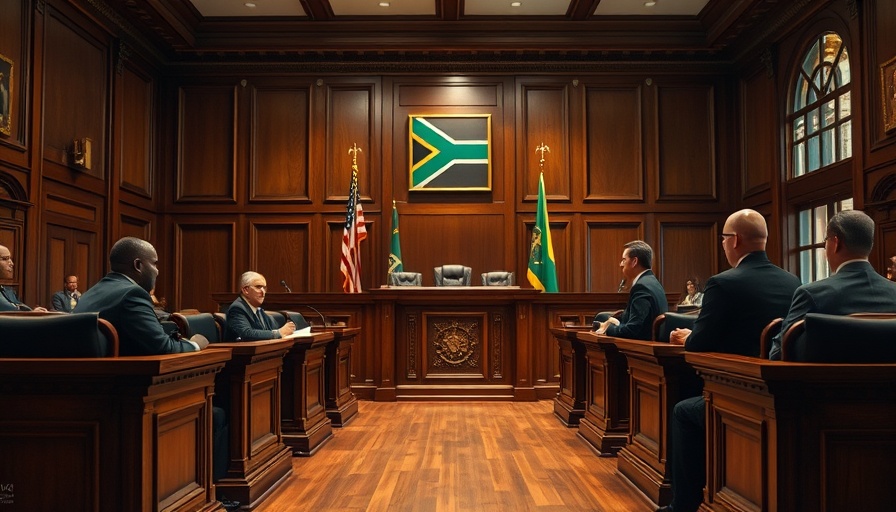
Legal Fallout from VAT Increase: Implications for South Africans
The recent decision by the Western Cape High Court to reserve judgment on the urgent application by the Democratic Alliance (DA) and Economic Freedom Fighters (EFF) regarding the impending Value-Added Tax (VAT) increase highlights a significant moment in South Africa's political and economic landscape. Set to take effect from May 1, this VAT hike, initiated during the 2025/2026 budget, has ignited heated debates around legality and fiscal responsibility.
Understanding the Dynamics of VAT in South Africa
Under the leadership of Finance Minister Enoch Godongwana, the contention arises from how Section 7(4) of the VAT Act is interpreted. He insists that the Act empowers him to implement temporary adjustments necessary for the economy, a point rejected by the opposition parties who argue that it centralizes excessive power in one individual and undermines democratic processes.
A Closer Look at the Political Stakes
As South Africa gears up for the 2024 general elections, the discourse surrounding the VAT increase illuminates broader issues of economic disparity and service delivery failures. The DA and EFF, prominent opposition parties, are using this court challenge as a platform to address public grievances, linking the VAT hike to a lack of progressive policies that adequately support the nation’s underprivileged communities.
Opposing Views: Key Arguments in the VAT Debate
Advocate Karrisha Pillay, representing Parliament, defends the legitimacy of the VAT adjustment, claiming all necessary procedures were observed leading to the vote on April 2. This perspective contrasts sharply with that of Keith Engel, CEO of the South African Institute of Tax Professionals, who advocates for a contextual understanding of the VAT regulations, suggesting the need for nuanced interpretations rather than blanket dismissals.
Future of Tax Policies and Public Sentiment
The implications of this court case extend beyond mere economics; they underscore a trend of increasing public scrutiny over government spending and taxation policies. As communities grapple with rising cost-of-living issues and stagnant social grants, voter turnout for the upcoming municipal elections in 2026 may hinge on the perceptions around fairness in taxation, particularly among young voters disillusioned by economic policies of the current coalition government.
Conclusion: The Path Ahead for South African Governance
As we await the court's decision, the VAT increase serves as a litmus test for the strength of South Africa's opposition and the robustness of government accountability mechanisms. It is a crucial time for citizens to reflect on their economic rights, the role of public sector reform, and the effectiveness of current anti-corruption measures. Public engagement and awareness will be pivotal to shaping the discourse around fiscal policies, especially with an upcoming election cycle that demands addressing the pervasive issues of income inequality and social justice.
 Add Row
Add Row  Add
Add 




Write A Comment